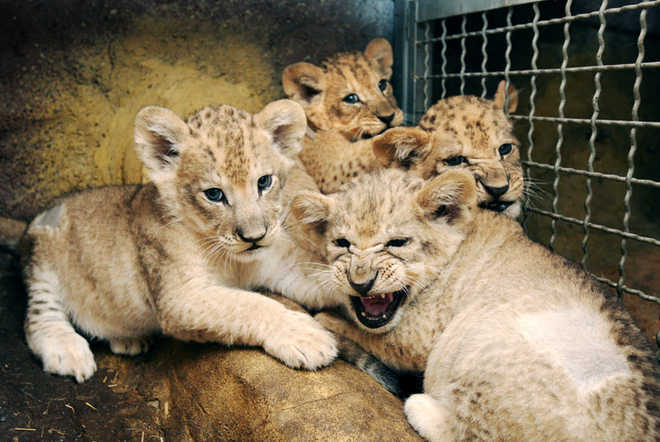
Photo for representation only. — iStock
London
Strategies that animals like lions, tigers and penguins use to find food can put their own lives in danger, a study says.
According to researchers from the UK's Swansea University, animals using a high-risk strategy to find rarer food are likely to become extinct as they fail to gather food for their young ones before they starve.
For example, lions and tigers have to search for long periods before they find prey, are more likely to fail to accrue the energy they need to breed, compared to animals that adopt a low-risk gambling strategy, like herbivores such as zebras.
"We know that animal populations across the world are taking a hit, with the most charismatic animals like lions and cheetahs being among the worst affected, but up until now it has not been clear why," said Rory Wilson Professor from the varsity.
The average time the young of each species can survive without food depends on their size (larger young ones can survive for longer) but newly hatched or newly born young of none of the species can live without food for more than a few days, the researchers explained.
For the study, published in the journal Current Biology, the team used animal-attached thumbnail-sized electronic tags record the movement and measure food consumption in condors, cheetahs, penguins and sheep in Argentina, South Africa and Northern Ireland over a six-year period While the Magellanic penguins from Argentina finds fish easily, indicating that the odds are good for them, the African penguins, whose population has been declining in southern Africa for decades, have very poor odds for their food-finding stakes due to commercial fishing practices.
"When animals are taking rare prey anyway, even small changes in the ecosystem stemming from human activities can be the straw that breaks the camel's back in terms of breeding success, and this seems to be the case for the African penguin, whose population is now just one per cent of what it was 100 years ago," Wilson said.
The researchers hope that their model can be used to predict the fortunes of species across the globe, which could prove pivotal in helping to formulate conservation plans. — IANS



























